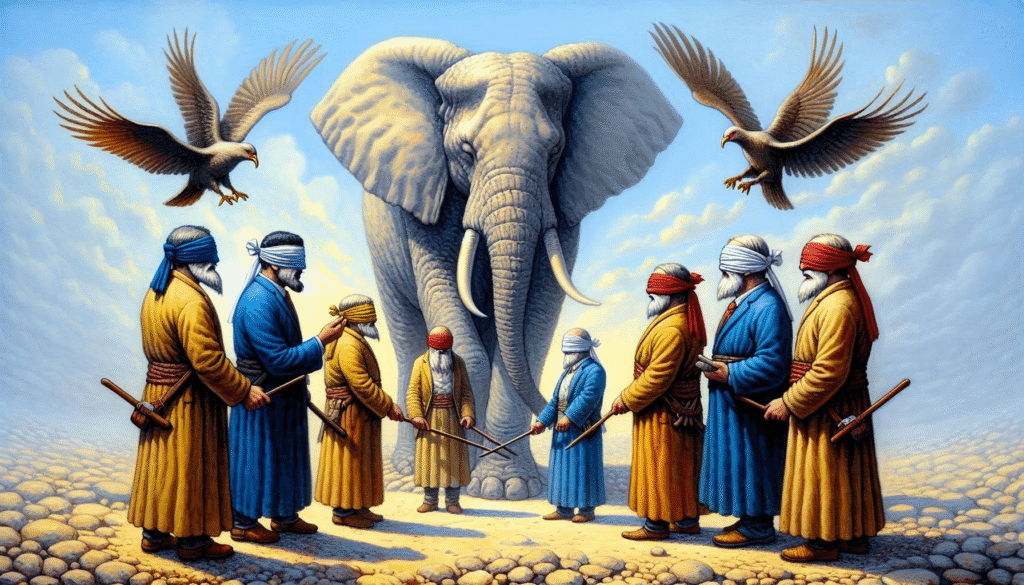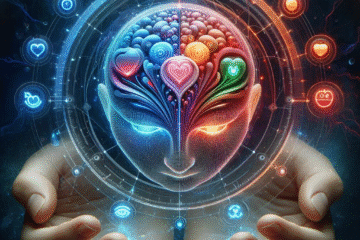Lesallan | May 22, 2025

Perspectives on Conflict Resolution: Fable of the Blind Men and the Elephant
Conflict is often sustained or escalated by our inability to perceive the entirety of any situation, much like the fable of the blind men and the elephant (Saxe, 2024), where each person’s understanding is limited by their narrow encounter with the whole. The parable dates back centuries and appears in various cultural and religious texts, serving as a metaphor for the human tendency to form incomplete and often conflicting perceptions when confronted with complex issues (Wikipedia, 2025). When conflict partners hold divergent views based solely on their limited experiences, the likelihood of misunderstanding increases, which in turn impedes the resolution process.
Perception is critical in resolving conflicts because it shapes our interpretation of events and influences our responses. When people can consider multiple perspectives, they are more apt to recognize that no single viewpoint is entirely complete or infallible. In the fable, each blind man touches a different part of the elephant and confidently describes the creature based on that single tactile experience (Saxe, 2024). However, their individual narratives do not capture the full reality of the elephant. This serves as a cautionary tale: when we rely exclusively on our own limited perspective, we risk mischaracterizing the problem at hand. Effective conflict resolution requires actively acknowledging that our own interpretation is only one piece of a larger, multifaceted picture. This understanding can foster empathy and open the door for collaborative problem solving, as parties learn to piece together the larger picture by incorporating the insights of others (Saxe, 2024).
Being too adamant about being “right” in a conflict often exacerbates the situation rather than resolving it. When individuals cling to the belief that their perspective is the absolute truth, they can become resistant to alternative viewpoints and less willing to negotiate or compromise. This arrogance can lead to entrenched positions where each side is more focused on defending its own interpretation rather than engaging in meaningful dialogue that could reveal a more complete understanding of the situation. Just as the blind men in the fable argued vehemently about the nature of the elephant without considering the others’ descriptions, people in conflict may end up escalating disputes when they refuse to consider that their knowledge might be partial. Recognizing that our own perceptions are inherently limited is a crucial step towards adopting a more flexible and understanding approach to conflict resolution (American Literature, 2025).
For instance, I once observed a lively rehearsal with my guitar-playing friend, where a new song arrangement sparked considerable debate. He was convinced that his intricate guitar solo was the pinnacle of technical prowess, and that the arrangement was flawless solely based on its complex riffs. However, the other band members expressed concerns about the overall musical balance, noting that the melody and harmony were overshadowed by an overemphasis on technical brilliance—elements my friend had not sufficiently considered. Because he was fixated on proving that his technical skills were the core of the composition’s success, he dismissed the insights of his bandmates, which only led to tension within the group rather than sparking constructive dialogue. Had he attempted to listen to their perspectives, he might have recognized that blending his solo with a fuller, more inclusive musical arrangement could have elevated the entire performance, turning a potential conflict into an opportunity for creative collaboration.
In conclusion, the fable of the blind men and the elephant encapsulates a vital lesson in conflict resolution: meaningful progress depends on the ability to appreciate multiple perspectives and recognize the limitations of our own perceptions. Embracing humility and openness allows each party to contribute to a fuller, multifaceted understanding of the issue—a process that paves the way for more effective and empathetic resolution strategies.
Blessings,
Lesallan
References:
American Literature. (2025). The Blind Men and the Elephant. Retrieved from
https://americanliterature.com/author/james-baldwin/short-story/the-blind-men-and-the-elephant
Saxe, J. G. (2024). The Blind Men and the Elephant: Poem. Retrieved from
Wikipedia. (2025). Blind men and an elephant. Retrieved from


